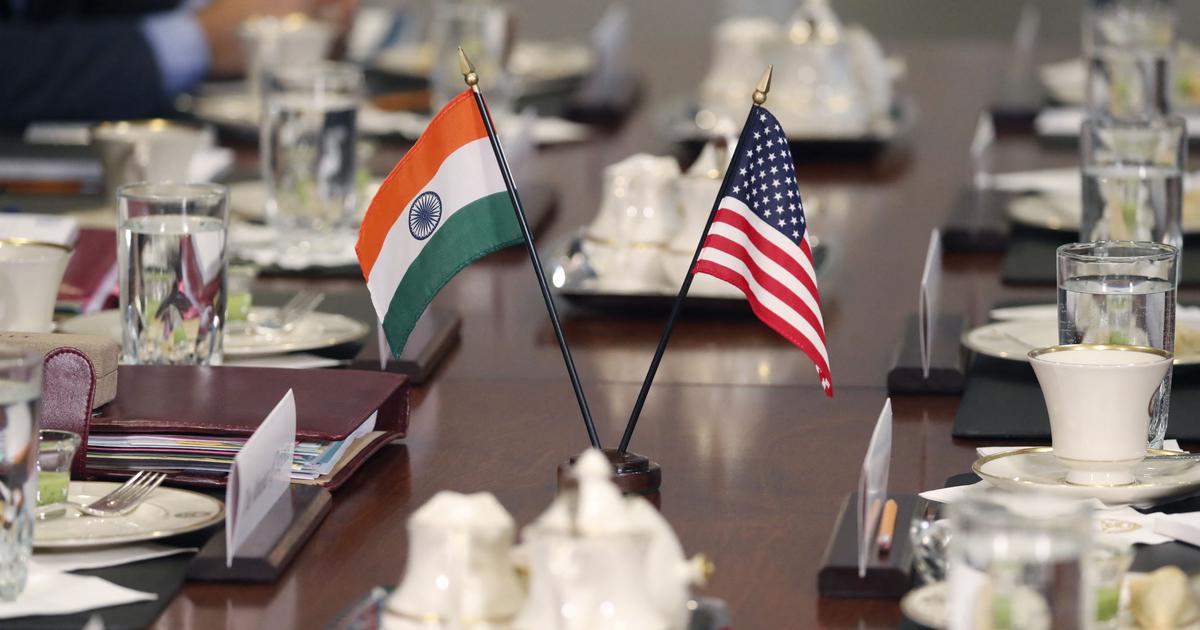The US Senate passed a USD 858 billion defence bill that aims to strengthen defence ties with India. It does this by helping India reduce its reliance on Russian-made military equipment and by giving billions of dollars to take steps to deal with the threats China poses to America’s national security.
The NDAA, or National Defense Authorization Act, was passed by the Senate on Thursday with 83 yes votes and 11 no votes. On December 8, the House of Representatives passed the bill with 350 votes in favour and 80 votes against.
Now, President Joe Biden will sign it into law at the White House.
As passed by the House and the Senate, the NDAA aims to improve relations between the US and India by telling the Departments of Defense and State to work more closely with India on new technology, joint research and development, defence and cyber capabilities, and other ways to work together, such as reducing India’s reliance on defence equipment made in Russia.
These parts of the bill help Senator Mark Warner, who is co-chair of the Senate India Caucus, show how important the U.S. defence partnership with India is and help India speed up its efforts to diversify its defence systems.
Senator Jack Reed, who is in charge of the Senate Armed Services Committee, said that the NDAA strengthens important alliances and partnerships to make America safer.
“This year’s NDAA includes investments in specific areas, reforms that are needed, and better oversight. It covers a wide range of important issues, from strategic competition with China and Russia to disruptive technologies like hypersonic, AI, and quantum computing to modernising our ships, planes, and other equipment “he said.
Section 1260 of the NDAA says that new areas of expanded defence cooperation with India need to include intelligence collection capabilities, unmanned aerial vehicles, fourth- and fifth-generation aircraft, depot-level maintenance, fifth-generation wireless communication, open Radio Access Network technologies, defensive cyber capabilities, cold-weather capabilities, and critical and emerging technologies.
Within 180 days of the bill being signed into law, the NDAA told the Defense Secretary to give Congress a report on the opportunities and challenges of making India less reliant on weapons and defence systems made in Russia.
India signed a USD 5 billion deal with Russia in October 2018 to buy five S-400 Triumf air defence missile systems to strengthen its air defence. This was done even though the Trump administration at the time warned that going through with the deal could lead to US sanctions.
The US has said many times that it doesn’t want India to depend on Russia for its defence.
Senator Jim Risch, who is the ranking member of the Senate Foreign Relations Committee, said that the passage of the FY2023 NDAA brings us one step closer to giving Taiwan the security authorities and collaborative US-Taiwan defence relationship it needs to effectively stop Chinese aggression and, if necessary, beat it.
The bill gives billions of dollars to take steps to deal with the threats China poses to the national security of the United States.
Mitch McConnell, the leader of the Republicans in the Senate, said that the NDAA increases US investments in space assets and naval mines, both of which are very important for operations in the Indo-Pacific.
The Indian Ocean, the western and central parts of the Pacific Ocean, and the South China Sea make up the Indo-Pacific biogeographic region.
The US, India, and a few other world powers have been talking about how important it is to keep the Indo-Pacific free, open, and thriving in the face of China’s growing military activity in the resource-rich area.
Taiwan, the Philippines, Brunei, Malaysia, and Vietnam all claim parts of the disputed South China Sea, but China claims almost all of it. In the South China Sea, Beijing has made up islands and put up military bases. China and Japan also fight over land in the East China Sea.
McConnell said, “It gives countering China’s nuclear breakout a higher priority by stopping the Biden administration’s foolish plans to get rid of key parts of our nuclear arsenal.”
“It makes our cutting-edge research more secure and improves our ability to launch strategic deterrents from the sea,” he said.
McConnell said that this strong, bipartisan bill gives America’s long-term promises to help both vulnerable countries in China’s orbit and vulnerable people in its own country more weight.
“It will give permission for a new Joint Force Headquarters right there in the area, and it will make sure that US military installations are not used to sell goods made in the Xinjiang province by Uyghur slaves,” he said.
McConnell said, “This bill will also strengthen the spine of the liberal entertainment industry, which doesn’t seem to have the guts to cross Beijing without clearer incentives.”
“This year’s National Defense Authorization Act (NDAA) will make it illegal for US military assets, like ships or bases, to be used in movies where the producers then give final approval to Chinese censors. If Hollywood wants to hurt American values of free speech to please the Communist Party of China (CCP), they won’t be able to use our Armed Forces as props “he said.
“Increasing our competition with China and reducing the risks that the CCP poses to the United States does not mean that we should leave the world stage as a whole. the opposite is true. Checking the CCP will require a coordinated effort and even stronger, deeper ties between the U.S. and its friends and partners who share its values “McConnell said.
He said that China is actively working to hurt American interests and partnerships in Asia, the Middle East, Africa, and other places.
“This NDAA will give us more power. It gives important partnerships in the Indo-Pacific top priority, “he said.
